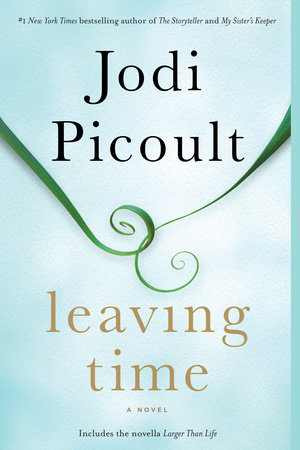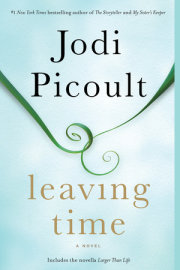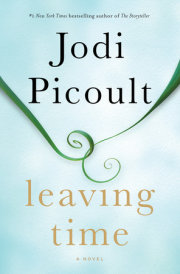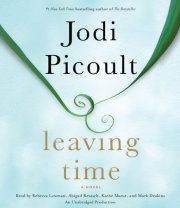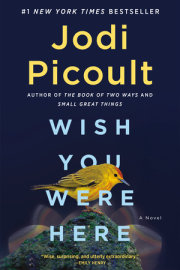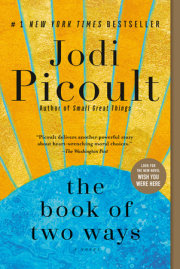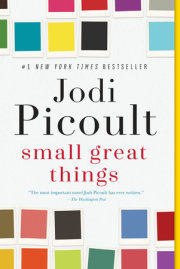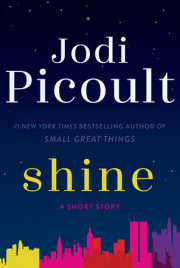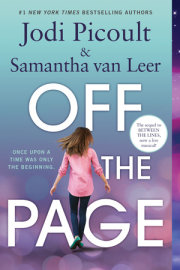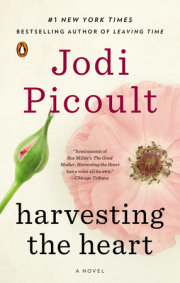JennaSome people used to believe that there was an elephant graveyard—-a place that sick and old elephants would travel to to die. They’d slip away from their herds and would lumber across the dusty landscape, like the titans we read about in seventh grade in Greek Mythology. Legend said the spot was in Saudi Arabia; that it was the source of a supernatural force; that it contained a book of spells to bring about world peace.
Explorers who went in search of the graveyard would follow dying elephants for weeks, only to realize they’d been led in circles. Some of these voyagers disappeared completely. Some could not remember what they had seen, and not a single explorer who claimed to have found the graveyard could ever locate it again.
Here’s why: The elephant graveyard is a myth.
True, researchers have found groups of elephants that died in the same vicinity, many over a short period of time. My mother, Alice, would have said there’s a perfectly logical reason for a mass burial site: a group of elephants who died all at once due to lack of food or water; a slaughter by ivory hunters. It’s even possible that the strong winds in Africa could blow a scattering of bones into a concentrated pile. Jenna, she would have told me, there’s an explanation for everything you see.
There is plenty of information about elephants and death that is not fable but instead cold, hard science. My mother would have been able to tell me that, too. We would have sat, shoulder to shoulder, beneath the massive oak where Maura liked to shade herself, watching the elephant pick up acorns with her trunk and pitch them. My mother would rate each toss like an Olympic judge. 8.5 . . . 7.9. Ooh! A perfect 10.
Maybe I would have listened. But maybe, too, I would have just closed my eyes. Maybe I would have tried to memorize the smell of bug spray on my mother’s skin, or the way she absentmindedly braided my hair, tying it off on the end with a stalk of green grass.
Maybe the whole time I would have been wishing there really was an elephant graveyard, except not just for elephants. Because then I’d be able to find her.
AliceWhen I was nine—-before I grew up and became a scientist—-I thought I knew everything, or at least I wanted to know everything, and in my mind there was no difference between the two. At that age, I was obsessed with animals. I knew that a group of tigers was called a streak. I knew that dolphins were carnivores. I knew that giraffes had four stomachs and that the leg muscles of a locust were a thousand times more powerful than the same weight of human muscle. I knew that white polar bears had black skin beneath their fur, and that jellyfish had no brains. I knew all these facts from the Time--Life monthly animal fact cards that I had received as a birthday gift from my pseudo-stepfather, who had moved out a year ago and now lived in San Francisco with his best friend, Frank, who my mother called “the other woman” when she thought I wasn’t listening.
Every month new cards arrived in the mail, and then one day, in October 1977, the best card of all arrived: the one about elephants. I cannot tell you why they were my favorite animals. Maybe it was my bedroom, with its green shag jungle carpet and the wallpaper border of cartoon pachyderms dancing across the walls. Maybe it was the fact that the first movie I’d ever seen, as a toddler, was Dumbo. Maybe it was because the silk lining inside my mother’s fur coat, the one she had inherited from her own mother, was made from an Indian sari and printed with elephants.
From that Time--Life card, I learned the basics about elephants. They were the largest land animals on the planet, sometimes weighing more than six tons. They ate three to four hundred pounds of food each day. They had the longest pregnancy of any land mammal—-twenty--two months. They lived in breeding herds, led by a female matriarch, often the oldest member of the group. She was the one who decided where the group went every day, when they took a rest, where they ate, and where they drank. Babies were raised and protected by all the female relatives in the herd, and traveled with them, but when males were about thirteen years old, they left—-sometimes preferring to wander on their own and sometimes gathering with other males in a bull group.
But those were facts that everyone knew. I, on the other hand, became obsessed and dug a little deeper, trying to find out everything I could at the school library and from my teachers and books. So I also could tell you that elephants got sunburned, which is why they would toss dirt on their backs and roll in the mud. Their closest living relative was the rock hyrax, a tiny, furry thing that looked like a guinea pig. I knew that just like a human baby sucks its thumb to calm itself down, an elephant calf might sometimes suck its trunk. I knew that in 1916, in Erwin, Tennessee, an elephant named Mary was tried and hanged for murder.
In retrospect I am sure my mother got tired of hearing about elephants. Maybe that is why, one Saturday morning, she woke me before the sun came up and told me we were going on an adventure. There were no zoos near where we lived in Connecticut, but the Forest Park Zoo in Springfield, Massachusetts, had a real, live elephant—-and we were going to see her.
To say I was excited would be an understatement. I peppered my mother with elephant jokes for hours:
What’s beautiful, gray, and wears glass slippers? Cinderelephant.
Why are elephants wrinkled? They don’t fit on the ironing board.
How do you get down from an elephant? You don’t. You get down from a goose.
Why do elephants have trunks? Because they’d look funny with glove compartments.
When we got to the zoo, I raced along the paths until I found myself standing in front of Morganetta the elephant.
Who looked nothing like what I had imagined.
This was not the majestic animal featured on my Time--Life card, or in the books I had studied. For one thing, she was chained to a giant concrete block in the center of her enclosure, so that she couldn’t walk very far in any direction. There were sores on her hind legs from the shackles. She was missing one eye, and she wouldn’t look at me with the other. I was just another person who had come to stare at her, in her prison.
My mother was stunned by her condition, too. She flagged down a zookeeper, who said that Morganetta had once been in local parades, and had done stunts like competing against undergrads in a tug--o’--war at a nearby school, but that she had gotten unpredictable and violent in her old age. She’d lashed out at visitors with her trunk if they came too close to her cage. She had broken a caregiver’s wrist.
I started to cry.
My mother bundled me back to the car for the four--hour drive home, although we had only been at the zoo for ten minutes.
“Can’t we help her?” I asked.
This is how, at age nine, I became an elephant advocate. After a trip to the library, I sat down at my kitchen table, and I wrote to the mayor of Springfield, Massachusetts, asking him to give Morganetta more space, and more freedom.
He didn’t just write me back. He sent his response to The Boston Globe, which published it, and then a reporter called to do a story on the nine--year--old who had convinced the mayor to move Morganetta into the much larger buffalo enclosure at the zoo. I was given a special Concerned Citizen award at my elementary school assembly. I was invited back to the zoo for the grand opening to cut the red ribbon with the mayor. Flashbulbs went off in my face, blinding me, as Morganetta roamed behind us. This time, she looked at me with her good eye. And I knew, I just knew, she was still miserable. The things that had happened to her—-the chains and the shackles, the cage and the beatings, maybe even the memory of the moment she was taken out of Africa—-all that was still with her in that buffalo enclosure, and it took up all the extra space.
For the record, Mayor Dimauro did continue to try to make life better for Morganetta. In 1979, after the demise of Forest Park’s resident polar bear, the facility closed and Morganetta was moved to the Los Angeles Zoo. Her home there was much bigger. It had a pool, and toys, and two older elephants.
If I knew back then what I know now, I could have told the mayor that just sticking elephants in proximity with others does not mean they will form friendships. Elephants are as unique in their personalities as humans are, and just as you would not assume that two random humans would become close friends, you should not assume that two elephants will bond simply because they are both elephants. Morganetta continued to spiral deeper into depression, losing weight and deteriorating. Approximately one year after she arrived in L.A., she was found dead in the bottom of the enclosure’s pool.
The moral of this story is that sometimes, you can attempt to make all the difference in the world, and it still is like trying to stem the tide with a sieve.
The moral of this story is that no matter how much we try, no matter how much we want it . . . some stories just don’t have a happy ending.
Part IHow to explain my heroic courtesy? I feel
that my body was inflated by a mischievous boy.
Once I was the size of a falcon, the size of a lion,
once I was not the elephant I find I am.
My pelt sags, and my master scolds me for a botched
trick. I practiced it all night in my tent, so I was
somewhat sleepy. People connect me with sadness
and, often, rationality. Randall Jarrell compared me
to Wallace Stevens, the American poet. I can see it
in the lumbering tercets, but in my mind
I am more like Eliot, a man of Europe, a man
of cultivation. Anyone so ceremonious suffers
breakdowns. I do not like the spectacular experiments
with balance, the high--wire act and cones.
We elephants are images of humility, as when we
undertake our melancholy migrations to die.
Did you know, though, that elephants were taught
to write the Greek alphabet with their hooves?
Worn out by suffering, we lie on our great backs,
tossing grass up to heaven—-as a distraction, not a prayer.
That’s not humility you see on our long final journeys:
it’s procrastination. It hurts my heavy body to lie down.
—Dan Chiasson, “The Elephant”
JennaWhen it comes to memory, I’m kind of a pro. I may only be thirteen, but I’ve studied it the way other kids my age devour fashion magazines. There’s the kind of memory you have about the world, like knowing that stoves are hot and that if you don’t wear shoes outside in the winter you’ll get frostbite. There’s the kind you get from your senses—-that staring at the sun makes you squint and that worms aren’t the best choice of meal. There are the dates you can recall from history class and spew back on your final exam, because they matter (or so I’m told) in the grand scheme of the universe. And there are personal details you remember, like the high spikes on a graph of your own life, which matter to nobody but yourself. Last year at school, my science teacher let me do a whole independent study on memory. Most of my teachers let me do independent studies, because they know I get bored in class and, frankly, I think they’re a little scared that I know more than they do and they don’t want to have to admit it.
My first memory is white at the edges, like a photo taken with too bright a flash. My mother is holding spun sugar on a cone, cotton candy. She raises her finger to her lips—-This is our secret—-and then tears off a tiny piece. When she touches it to my lips, the sugar dissolves. My tongue curls around her finger and sucks hard. Iswidi, she tells me. Sweet. This is not my bottle; it’s not a taste I know, but it’s a good one. Then she leans down and kisses my forehead. Uswidi, she says. Sweetheart.
I can’t be more than nine months old.
This is pretty amazing, really, because most kids trace their first memories to somewhere between the ages of two and five. That doesn’t mean that babies are little amnesiacs—-they have memories long before they have language but, weirdly, can’t access them once they start talking. Maybe the reason I remember the cotton candy episode is because my mother was speaking Xhosa, which isn’t our language but one she picked up when she was working on her doctorate in South Africa. Or maybe the reason I have this random memory is as a trade--off my brain made—-because I can’t remember what I desperately wish I could: details of the night my mother disappeared.
My mother was a scientist, and for a span of time, she even studied memory. It was part of her work on post-traumatic stress and -elephants. You know the old adage that elephants never forget? Well, it’s fact. I could give you all my mother’s data, if you want the proof. I’ve practically got it memorized, no pun intended. Her official published findings were that memory is linked to strong emotion, and that negative moments are like scribbling with permanent marker on the wall of the brain. But there’s a fine line between a negative moment and a traumatic one. Negative moments get remembered. Traumatic ones get forgotten, or so warped that they are unrecognizable, or else they turn into the big, bleak, white nothing I get in my head when I try to focus on that night.
Here’s what I know:
1. I was three.
2. My mother was found on the sanctuary property, unconscious, about a mile south of a dead body. This was in the police reports. She was taken to the hospital.
3. I am not mentioned in the police reports. Afterward, my grandmother took me to stay at her place, because my father was frantically dealing with a dead elephant caregiver and a wife who had been knocked out cold.
4. Sometime before dawn, my mother regained consciousness and vanished from the hospital without any staff seeing her go.
5. I never saw her again.
Sometimes I think of my life as two train cars hitched together at the moment of my mom’s disappearance—-but when I try to see how they connect there’s a jarring on the track that jerks my head back around. I know that I used to be a girl whose hair was strawberry blond, who ran around like a wild thing while my mother took endless notes about the elephants. Now I’m a kid who is too serious for her age and too smart for her own good. And yet as impressive as I am with scientific statistics, I fail miserably when it comes to real--life facts, like knowing that Wanelo is a website and not a hot new band. If eighth grade is a microcosm of the social hierarchy of the human adolescent (and to my mother, it certainly would have been), then reciting fifty named elephant herds in the Tuli Block of Botswana cannot compete with identifying all the members of One Direction.
It’s not like I don’t fit in at school because I’m the only kid without a mother. There are lots of kids missing parents, or kids who don’t talk about their parents, or kids whose parents are now living with new spouses and new kids. Still, I don’t really have friends at school. I sit at the lunch table on the far end, eating whatever my grandmother’s packed me, while the cool girls—-who, I swear to God, call themselves the Icicles—-chatter about how they are going to grow up and work for OPI and make up nail--polish color names based on famous movies: Magent--lemen Prefer Blondes; A Fuchsia Good Men. Maybe I’ve tried to join the conversation once or twice, but when I do, they usually look at me as if they’ve smelled something bad coming from my direction, their little button noses wrinkled, and then go back to whatever they were talking about. I can’t say I’m devastated by the way I’m ignored. I guess I have more important things on my mind.
The memories on the other side of my mother’s disappearance are just as spotty. I can tell you about my new bedroom at my grandma’s place, which had a big--girl bed—-my first. There was a little woven basket on the nightstand, which was inexplicably filled with pink packets of Sweet’N Low, although there was no coffeemaker around. Every night, even before I could count, I’d peek inside to make sure they were still there. I still do.
I can tell you about visiting my father, at the beginning. The halls at Hartwick House smelled like ammonia and pee, and even when my grandma urged me to talk to him and I climbed up on the bed, shivering at the thought of being so close to someone I recognized and didn’t know at all, he didn’t speak or move. I can describe how tears leaked out of his eyes as if it were a natural and expected phenomenon, the way a cold can of soda sweats on a summer day.
I remember the nightmares I had, which weren’t really nightmares, but just me being awakened from a dead sleep by Maura’s loud trumpeting. Even after my grandma came running into my room and explained to me that the matriarch elephant lived hundreds of miles away now, in a new sanctuary in Tennessee, I had this nagging sense that Maura was trying to tell me something, and that if I only spoke her language as well as my mother had, I’d understand.
All I have left of my mother is her research. I pore over her journals, because I know one day the words will rearrange themselves on a page and point me toward her. She taught me, even in absentia, that all good science starts with a hypothesis, which is just a hunch dressed up in fancy vocabulary. And my hunch is this: She would never have left me behind, not willingly.
If it’s the last thing I do, I’m going to prove it.
When I wake up, Gertie is draped over my feet, a giant dog rug. She twitches, running after something she can only see in her dreams.
I know what that feels like.
I try to get out of bed without waking her, but she jumps up and barks at the closed door of my bedroom.
“Relax,” I say, sinking my fingers into the thick fur at the ruff of her neck. She licks my cheek but doesn’t relax at all. She keeps her eyes fixed on the bedroom door, as if she can see what’s on the other side.
Which, given what I have planned for the day, is pretty ironic.
Gertie leaps off the bed, her wagging tail pounding the wall. I open the door and let her scramble downstairs, where my grandmother will let her out and feed her and start to cook breakfast for me.
Gertie came to my grandmother’s house a year after I did. Before that, she had lived at the sanctuary and she was best friends with an elephant named Syrah. She’d spend every day at Syrah’s side; and when Gertie got sick Syrah even stood guard over her, gently rubbing her with her trunk. It was not the first story of a dog and an elephant bonding, but it was a legendary one, written up in children’s books and featured on the news. A famous photographer even shot a calendar of unlikely animal friendships and made Gertie Ms. July. So when Syrah was sent away after the sanctuary closed, Gertie was just as abandoned as I was. For months, no one knew what had happened to her. And then one day, when my grandmother answered the doorbell, there was an animal rescue officer asking if we knew this dog, which had been found in our neighborhood. She still had her collar, with her name embroidered on it. Gertie was skinny and flea--bitten, but she started licking my face. My grandmother let Gertie stay, probably because she thought it would help me adjust.
If we’re going to be honest here—-I have to tell you it didn’t work. I’ve always been a loner, and I’ve never really felt like I belong here. I’m like one of those women who read Jane Austen obsessively and still hope that Mr. Darcy might show up at the door. Or the Civil War reenactors, who growl at each other on battlefields now spotted with baseball fields and park benches. I’m the princess in an ivory tower, except every brick is made of history, and I built this prison myself.
I did have one friend at school, once, who sort of understood. Chatham Clarke was the only person I ever told about my mother and how I was going to find her. Chatham lived with her aunt, because her mother was a drug addict and in jail; and she had never met her father. “It’s noble,” Chatham told me. “How much you want to see your mother.” When I asked her what that meant, she told me about how once her aunt had taken her to the prison where her mom was serving her term; how she’d dressed up in a frilly skirt and those shoes that look like black mirrors. But her mother was gray and lifeless, her eyes dead and her teeth rotted out from the meth, and Chatham said that even though her mother said she wished she could give her a hug, she had never been so happy for something as she was for that wall of plastic between them in the visiting booth. She’d never gone back again.
Chatham was useful in a lot of ways—-she took me to buy my first bra, because my grandmother hadn’t thought to cover up a nonexistent bosom and (as Chatham said) no one over the age of ten who has to change in a school locker room should let the girls go free. She passed me notes in English class, crude stick--figure drawings of our teacher, who used too much self--tanner and smelled like cats. She linked arms with me as we walked down the hall, and every wildlife researcher will tell you that when it comes to survival in a hostile environment, a pack of two is infinitely safer than a pack of one.
One morning Chatham stopped coming to school. When I called her house no one answered. I biked over there to find a For Sale sign. I didn’t believe that she’d leave without any word, especially since she knew that was what had freaked me out so much about my mom’s disappearance, but it got harder and harder to defend her to myself as a week went by, and then two. When I started skipping homework assignments and failing tests, which wasn’t my style at all, I was summoned to the school counselor’s office. Ms. Sugarman was a thousand years old and had puppets in her office, so that kids who were too traumatized to say the word vagina could, I guess, put on a Punch and Judy show about where they’d been inappropriately touched. Anyway, I didn’t think Ms. Sugarman could guide me out of a paper bag, much less through a broken friendship. When she asked me what I thought had happened to Chatham, I said I assumed she had been raptured. That I was Left Behind.
Wouldn’t be the first time.
Ms. Sugarman didn’t call me back into her office again, and if I was considered the oddball in school before, I was completely off--the--charts weird now.
My grandmother was puzzled by Chatham’s vanishing act. “Without telling you?” she said at dinner. “That’s not how you treat a friend.” I didn’t know how to explain to her that the whole time Chatham was my partner in crime, I was anticipating this. When someone leaves you once, you expect it to happen again. Eventually you stop getting close enough to people to let them become important to you, because then you don’t notice when they drop out of your world. I know that sounds incredibly depressing for a thirteen--year--old, but it beats being forced to accept that the common denominator must be you.
I may not be able to change my future, but I’m sure as hell going to try to figure out my past.
So I have a morning ritual. Some people have coffee and read the paper; some people check Facebook; others straight--iron their hair
or do a hundred sit--ups. Me, I pull on my clothes and then go to
my computer. I spend a lot of time on the Internet, mostly at
www.NamUs.gov, the official Department of Justice website for missing and unidentified persons. I check the Unidentified Persons database quickly, to make sure that no medical examiners have entered new information about a deceased woman Jane Doe. Then I check the Unclaimed Persons database, running through any additions to the list of people who have died but have no next of kin. Finally, I log in to the Missing Persons database and go right to my mom’s entry.
Status: Missing
First name: Alice
Middle name: Kingston
Last name: Metcalf
Nickname/Alias: None
Date LKA: July 16, 2004, 11:45 p.m.
Age LKA: 36
Age now: 46
Race: White
Sex: Female
Height: 65 inches
Weight: 125
City: Boone
State: NH
Circumstances: Alice Metcalf was a naturalist and researcher at the New England Elephant Sanctuary. She was found unconscious the evening of July 16, 2004, at approximately 10:00 p.m., one mile south of the body of a female sanctuary employee who had been trampled by an elephant. After being admitted to Mercy United Hospital in Boone Heights, NH, Alice regained consciousness at approximately 11:00 p.m. She was last seen by a nurse checking her vitals at 11:45 p.m.
Nothing’s changed on the profile. I know, because I am the one who wrote it.
There’s another page about my mother’s hair color (red) and eye color (green); about whether she had any scars or deformities or tattoos or artificial limbs that could be used to identify her (no). There’s a page that lists the clothing she was wearing when she disappeared, but I had to leave that blank, because I don’t know. There’s an empty page about possible transportation methods and another about dental records and one for her DNA sample. There’s a picture of her, too, that I scanned from the only photo in the house my grandma hasn’t squirreled away in the attic—-a close--up of my mother holding me in her arms, in front of Maura the elephant.
Then there’s a page for the police contacts. One of them, Donny Boylan, retired and moved to Florida and has Alzheimer’s (you’d be amazed at what you can learn from Google). The other, Virgil Stanhope, was last listed in a police newsletter for being promoted to detective at a ceremony on October 13, 2004. I know, from my digital sleuthing, that he is no longer employed by the Boone Police Department. Aside from that, it appears he has disappeared off the face of the earth.
It’s not nearly as uncommon as you think.
There are entire families whose homes were abandoned with television sets blaring, kettles boiling, toys strewn across the floor; families whose vans were found in empty parking lots or sunk in local ponds, and yet no bodies were ever located. There are college girls who went missing after they wrote their numbers down on napkins for men at bars. There are grandfathers who wandered into the woods and were never heard from again. There are babies who were kissed good night in their cribs, and gone before the light of morning. There are mothers who wrote out grocery lists, got in their cars, but never came home from the Stop & Shop.
“Jenna!” My grandmother’s voice interrupts me. “I’m not running a restaurant!”
I shut down my computer and head out of my bedroom. On second thought, I reach into my lingerie drawer and pull a delicate blue scarf out of its recesses. It doesn’t work at all with my jean shorts and tank top, but I loop it around my neck, hurry downstairs, and climb onto one of the counter stools.
“It’s not like I have nothing better to do than wait on you hand and foot,” my grandmother says, her back to me as she flips a pancake in the skillet.
My grandmother is not the TV grandmother, a cuddly, white--haired cherub. She works as a meter maid for the local parking enforcement office, and I can count on one hand the number of times I’ve seen her smile.
I wish I could talk to her about my mom. I mean, she has all the memories I don’t—-because she lived with my mother for eighteen years, while I, on the other hand, had a measly three. I wish I had the kind of grandmother who showed me pictures of my missing mom when I was little, or baked a cake on her birthday, instead of just encouraging me to seal my feelings inside a little box.
Don’t get me wrong—-I love my grandmother. She comes to hear me sing in school chorus concerts, and she cooks vegetarian for me even though she likes meat; she lets me watch R--rated movies because (as she says) there’s nothing in them I won’t see in the halls between classes. I love my grandmother. She just isn’t my mom.
The lie I’ve told my grandma today is that I’m babysitting for the son of one of my favorite teachers—-Mr. Allen, who taught me seventh--grade math. The kid’s name is Carter, but I call him Birth Control, because he’s the best argument ever against procreation. He’s the least attractive infant I’ve ever met. His head is enormous, and when he looks at me, I’m pretty sure he can read my mind.
My grandmother pivots, pancakes balanced on a spatula, and freezes when she sees the scarf around my neck. True, it doesn’t match, but that’s not why her mouth pinches tight. She shakes her head in silent judgment and smacks the spatula against my plate as she sets down the food.
“I felt like accessorizing,” I lie.
My grandmother doesn’t talk about my mother. If I’m empty inside because she vanished, then Grandma’s full to bursting with anger. She can’t forgive my mother for leaving—-if that’s what happened—-and she can’t accept the alternative—-that my mother can’t come back, because she’s dead.
“Carter,” my grandmother says, smoothly peeling back the conversation one layer. “Is that the baby who looks like an eggplant?”
“Not all of him. Just his forehead,” I clarify. “Last time I sat for him, he screamed for three hours straight.”
“Bring earplugs,” my grandmother suggests. “Will you be home for dinner?”
“I’m not sure. But I’ll see you later.”
I tell her that every time she leaves. I tell her, because it’s what we both need to hear. My grandmother puts the frying pan in the sink and picks up her purse. “Make sure you let Gertie out before you go,” she instructs, and she’s careful not to look at me or my mother’s scarf as she passes.
I started actively searching for my mother when I was eleven. Before that, I missed her, but I didn’t know what to do about it. My grandmother didn’t want to go there, and my father—-as far as I knew—-had never reported my mother missing, because he was catatonic in a psychiatric hospital when it happened. I bugged him about it a few times, but since that usually triggered new meltdowns, I stopped bringing
it up.
Then, one day at the dentist’s office, I read an article in People magazine about a kid who was sixteen who got his mother’s unsolved murder case reopened, and how the killer was brought to justice. I started to think that what I lacked in money and resources I could make up for in sheer determination, and that very afternoon, I decided to try. True, it could be a dead end, but no one else had succeeded in finding my mom. Then again, no one had looked as hard as I planned to look, either.
Mostly, I was dismissed or pitied by the people I approached. The Boone Police Department refused to help me, because (a) I was a minor working without my guardian’s consent; (b) my mother’s trail was stone cold ten years later; and (c) as far as they were convinced, the related murder case had been solved—-it had been ruled an accidental death. The New England Elephant Sanctuary, of course, was completely disbanded, and the one person who could tell me more about what had happened to that caregiver who died—-namely, my dad—-wasn’t even able to accurately give his own name or the day of the week, much less details about the incident that caused his psychotic break.
So I decided that I would take matters into my own hands. I tried to hire a private detective but learned quickly they don’t do work pro bono, like some lawyers. That was when I started babysitting teachers’ kids, with a plan to have enough money saved by the end of this summer to at least get someone interested. Then I started the process of becoming my own best investigator.
Almost every online search engine to find missing people costs money and requires a credit card, neither of which I had. But I did manage to find a how--to book, So You Want to Be a PI?, at a church rummage sale, and I spent several days memorizing the information in one chapter: “Finding Those Who Are Lost.”
According to the book, there are three types of Missing People:
1. People who are not really missing but have lives and friends that don’t include you. Old boyfriends and the college roommate you lost touch with—-they’re in this category.
2. People who are not really missing but don’t want to be found. Deadbeat dads and mob witnesses, for example.
3. Everyone else. Like runaways and the kids on milk cartons who are stolen away by psychos in white vans with no windows.
The whole reason PIs can find someone is that lots of people know exactly where the Missing Person is. You just aren’t one of them. You need to find someone who is.
People who disappear have their reasons. They might have committed insurance fraud or be hiding from the cops. They might have decided to start over. They might be up to their eyeballs in debt. They might have a secret they want no one to find out. According to So You Want to Be a PI?, the first question you need to ask yourself is: Does this person want to be found?
I have to admit, I don’t know if I want to hear the answer to that. If my mother walked away willingly, then maybe all it would take is knowing I’m still searching—-knowing that, after a decade, I haven’t forgotten her—-to make her come back to me. I sometimes think it would be easier for me to learn that my mother died ten years ago than to hear that she lived and chose not to return.
The book said that finding those who are lost is like doing a word jumble. You have all the clues, and you’re trying to unscramble them to make an address. Data collection is the weapon of the private investigator, and facts are your friends. Name, birth date, social security number. Schools attended. Military service dates, employment history, known friends and relatives. The farther you cast your net, the more likely you are to catch someone who has had a conversation with the Missing Person about where he wished they could go on vacation, or what his dream job might be.
What do you do with these facts? Well, you start by using them to rule things out. The very first Web search I did, at age eleven, was to go to the Social Security Death Index database and search its index for my mother’s name.
She was not listed as deceased, but that doesn’t tell me enough. She could be alive, or she could be living under a different identity. She could be dead and unidentified, a Jane Doe.
She was not on Facebook or Twitter, or Classmates.com, or the alumni network of Vassar, her college. Then again, my mother was always so absorbed in her work and her elephants, I don’t imagine she would have had much time for those distractions.
There were 367 Alice Metcalfs in online phone directories. I called two or three a week, so my grandmother wouldn’t freak out when she saw the long--distance charges on the phone bill. I left a lot of messages. There was one very sweet old lady in Montana who wanted to pray for my mom, and another woman who worked as a producer at an L.A. news station who promised to bring the story to her boss as a human--interest piece, but none of the people I called were my mother.
The book had other suggestions, too: searching prison databases, trademark applications, even the genealogy records of the Church of Jesus Christ of Latter--day Saints. When I tried those, I didn’t get any results. When I Googled “Alice Metcalf,” I got too many—-more than 1.6 million. So I narrowed it down by searching for “Alice Kingston Metcalf Elephant Grief,” and got a listing of all her scholarly research, most of it done prior to 2004.
On the sixteenth page of the Google search, however, was an article in an online psychology blog about the grieving process of animals. Three paragraphs into it, Alice Metcalf was quoted as saying, “It’s egotistical to think that humans have a monopoly on grief. There is considerable evidence that elephants mourn the loss of those they love.” This was a tiny sound bite, unremarkable in many ways, something she’d said a hundred times before in other journals and scholarly papers.
But this blog entry was dated 2006.
Two years after she disappeared.
Although I’ve searched the Internet for a year, I have not found any other proof of my mother’s existence. I don’t know if the date on the online article was a typo, if they were quoting my mother from years earlier, or if my mother—-apparently alive and well in 2006—-is still alive and well.
I just know I found it, and that’s a start.
•••
In the spirit of leaving no stone unturned, I haven’t limited my search to the suggestions in So You Want to Be a PI? I posted on missing persons Listservs. I once volunteered at a carnival to be a hypnotist’s subject in front of a crowd of people eating corn dogs and blooming onions, hoping he’d release the memories jammed inside me, but all he told me was that, in a past life, I was a scullery maid at a duke’s palace. I went to a free seminar on dream lucidity at the library, figuring I could transfer some of those skills to my stubborn locked mind, yet it turned out to be all about journaling and not much else.
Today, for the first time, I’m going to a psychic.
There are a few reasons I haven’t been before. First, I didn’t have enough money. Second, I didn’t have any idea where to find a reputable one. Third, it wasn’t very scientific, and if my mother, in absentia, had taught me anything, it was to believe cold, hard facts and data. But then two days ago, when I was restacking my mother’s notebooks, a bookmark fell out of one.
It wasn’t a bookmark, really. It was a dollar, origami--folded in the shape of an elephant.
All of a sudden, I could remember my mother with her hands flying over a bill, creasing and folding, flipping and reversing, until I stopped my toddler crying and stared, riveted, by the tiny toy she had made me.
I had touched the little elephant as if I expected it to disappear in a puff of smoke. And then my eye fell on the open page of the journal, a paragraph that suddenly stuck out like it was written in neon:
I always get the funniest expressions from colleagues when I tell them that the best scientists understand that 2–-3 percent of whatever it is they are studying is simply not quantifiable—-it may be magic or aliens or random variance, none of which can be truly ruled out. If we are to be honest as scientists . . . we must admit there may be a few things that we are not supposed to know.
I took that as a sign.
Everyone else on the planet would rather look at a folded masterpiece than the original flat piece of paper, but not me. Me, I had to start from the beginning. So I spent hours gingerly unfolding my mother’s handiwork, pretending I could still feel the heat of her fingertips on the bill. I went step by step, as if I were performing surgery, until I could refold the dollar the way she had; until I had a small herd of six new tiny green elephants marching across my desk. I kept testing myself all day, too, to make sure I had not forgotten, and every time I succeeded I flushed with pride. I fell asleep that night picturing a dramatic, movie--of--the--week moment when I finally found my missing mother and she didn’t know it was me, until I fashioned a dollar bill into an elephant in front of her eyes. And then she hugged me. And did not let go.
You’d be surprised at how many psychics are listed in the local yellow pages. New Age Spirit Guides, Psychic Advice from Laurel, Pagan Priestess Tarot Readings, Readings by Kate Kimmel, The Phoenix Rising—-Advice on Love, Wealth, Prosperity.
Second Sight by Serenity, Cumberland Street, Boone.
Serenity didn’t have a big ad or a 1--800 number or a last name, but she was within biking distance of my house, and she was the only one who promised to do a reading for the bargain price of ten dollars.
Cumberland Street is in a part of town that my grandmother always tells me to stay away from. It’s basically an alley with a bankrupt convenience store that’s been boarded up, and a hole--in--the--wall bar. Two wooden placards sit on the sidewalk, one advertising two--dollar shots before 5:00 p.m. and another, which reads: tarot, $10, 14r.
What is 14R? An age requirement? A bra size?
I’m nervous about leaving my bike on the street, since I don’t have a lock for it—-I never have to lock it up at school or on Main Street or anywhere else I normally go—-so I haul it into the corridor to the left of the bar entrance and drag it up the stairs, which smell like beer and sweat. At the top is a small foyer. One door is labeled 14R and has a sign on the front: readings by serenity.
The foyer walls are covered with peeling velveteen wallpaper. Yellow stains bloom on the ceiling, and it smells like too much potpourri. There’s a rickety side table propped up on a phone book for balance. On it is a china dish filled with business cards: serenity jones, -psychic.
There’s not much room for me and a bike in the little foyer. I jostle it in a stilted half circle, trying to lean it against the wall.
I can hear the muffled voices of two women on the other side of the interior door. I’m not sure if I’m supposed to knock, to tell Serenity I’m here. Then I realize that if she is any good at her job, she must already know.
Just in case, though, I cough. Loudly.
With the bike frame balanced against my hip, I press my ear against the door.
You’re troubled by a very big decision.
There is a gasp, a second voice. How did you know?
You have serious doubts that what you decide is going to be the right path.
The other voice, again: It’s been so hard, without Bert.
He’s here now. And he wants you to know that you can trust your heart.
There is a pause. That doesn’t sound like Bert.
Of course not. That was someone else who’s watching over you.
Auntie Louise?
Yes! She says you were always her favorite.
I can’t help it; I snort. Way to recover, Serenity, I think.
Maybe she’s heard me laugh, because there’s no more conversation coming from the other side of the door. I lean closer to listen more carefully, and knock the bike off balance. Stumbling to keep my footing, I trip over my mother’s scarf, which has unraveled. The bicycle—-and I—-crash into the little table, and the bowl falls off and shatters.
The door is yanked open, and I look up from where I’m crouched in the pretzel of bike frame, trying to gather the pieces. “What’s going on out here?”
Serenity Jones is tall, with a swirl of pink cotton--candy hair piled high on her head. Her lipstick matches her coiffure. I have this weird feeling that I’ve met her before. “Are you Serenity?”
“Who’s asking?”
“Shouldn’t you know?”
“I’m prescient, not omniscient. If I were omniscient this would be Park Avenue and I’d be squirreling my dividends away in the Caymans.” Her voice sounds overused, like a couch with its springs busted. Then she notices the broken bits of china in my hand. “Are you kidding me? That was my grandmother’s scrying bowl!”
I have no idea what a scrying bowl is. I just know I’m in deep trouble. “I’m sorry. It was an accident . . .”
“Do you have any idea how old this is? It’s a family heirloom! Thank Baby Jesus my mother isn’t alive to see this.” She grabs for the pieces, fitting the edges together as if they might magically stick.
“I could try to fix it—-”
“Unless you’re a magician, I don’t see that happening. My mother and my granny are both rolling in their graves, all because you don’t have the sense God gave a weasel.”
“If it was so precious, why did you just leave it sitting around in your entryway?”
“Why did you bring a bicycle into a room the size of a closet?”
“I thought it would get stolen if I left it in the hall,” I say, getting to my feet. “Look, I’ll pay for your bowl.”
“Sugar, your Girl Scout cookie money can’t cover the cost of an antique from 1858.”
“I’m not selling Girl Scout cookies,” I tell her. “I’m here for a reading.”
That stops her in her tracks. “I don’t do kids.”
Don’t or won’t? “I’m older than I look.” This is a fact. Everyone assumes I’m still in fifth grade, instead of eighth.
The woman who was inside having a reading suddenly is framed in the doorway, too. “Serenity? Are you all right?”
Serenity stumbles, tripping over the frame of my bike. “I’m fine.” She smiles tightly at me. “I can’t help you.”
“I beg your pardon?” the client says.
“Not you, Mrs. Langham,” Serenity answers, and then she mutters to me: “If you don’t leave right now, I’ll call the cops and press charges.”
Maybe Mrs. Langham doesn’t want a psychic who’s mean to kids; maybe she just doesn’t want to be around when the police come. For whatever reason, she looks at Serenity as if she is about to say something, but then edges past us both and bolts down the flight of stairs.
“Oh great,” Serenity mutters. “Now you owe me for a priceless heirloom and the ten bucks I just lost.”
“I’ll pay double,” I blurt out. I have sixty--eight dollars. It’s every penny I’ve made this year from babysitting, and I’m saving it for a private eye. I’m not convinced Serenity is the real deal. But I’d be willing to part with twenty dollars to find out.
Her eyes glint when she hears that. “For you,” she says, “I’ll make an age exception.” She opens the door wider, revealing a normal living room, with a couch and a coffee table and a television set. It looks like my grandmother’s house, which is a little disappointing. Nothing about this screams psychic. “You got a problem?” she asks.
“I guess I was kind of expecting a crystal ball and a beaded curtain.”
“You have to pay extra for those.”
I look at her, because I’m not sure if she’s kidding. She sits down heavily on the couch and gestures at a chair. “What’s your name?”
“Jenna Metcalf.”
“All right, Jenna,” she says and sighs. “Let’s get this over with.” She hands me a ledger and asks me to put down my name, address, and phone number.
“How come?”
“Just in case I need to communicate with you afterward. If a spirit has a message, or whatnot.”
I bet more likely it’s to send me emails advertising 20 percent off my next reading, but I take the leather--bound book and sign in. My palms are sweating. Now that the moment’s here, I’m having second thoughts. The worst--case scenario is that Serenity Jones turns out to be a hack, another dead end when it comes to the mystery of my mother.
No. The worst--case scenario is that Serenity Jones turns out to be a talented psychic, and I learn one of two things: that my mother willingly abandoned me, or that my mother’s dead.
She takes the tarot deck and begins to shuffle it. “What I’m about to tell you during this reading might not make sense right now. But remember the information, because one day, you might hear something and realize what the spirits were trying to tell you today.” She says this the same way flight attendants tell you how to buckle and release the latch on your seat belt. Then she hands the deck to me, to cut into three piles. “So what do you want to know? Who’s got a crush on you? If you’re going to get an A in English? Where you should apply to college?”
“I don’t care about any of that.” I hand the deck back, unbroken. “My mother disappeared ten years ago,” I say, “and I want you to help me find her.”
There is one passage in my mother’s field research journals that I know by heart. Sometimes, when I am bored in class, I even write it in my own notebook, trying to replicate the loops of her handwriting.
It’s from her time in Botswana, when she was a postdoc studying elephant grief in the Tuli Block, and she recorded the death of an elephant in the wild. This happened to be the calf of a fifteen--year--old female named Kagiso. Kagiso had given birth just after dawn, and the calf was either born dead or died very shortly afterward. This was not, according to my mother’s notes, unusual for an elephant having her first calf. What was strange was how Kagiso reacted.
Tuesday
0945 Kagiso standing beside calf in broad sunlight, in open clearing. Strokes its head and lifts its trunk. No movement from calf since 0635.
1152 Kagiso threatens Aviwe and Cokisa when the other females come to investigate body of calf.
1515 Kagiso continues to stand over body. Touches calf with her trunk. Tries to lift it.
Wednesday
0636 Worried about Kagiso, who has not been to watering hole.
1042 Kagiso kicks brush over body of calf. Breaks off branches to use as
cover.
1546 Brutally hot. Kagiso goes to watering hole and returns to remain in vicinity of calf.
Thursday
0656 Three lionesses approach; begin to drag off calf’s carcass. Kagiso charges; they run east. Kagiso stands over body of calf, bellowing.
0820 Still bellowing.
1113 Kagiso remains standing over dead calf.
2102 Three lions feed on calf carcass. Kagiso nowhere in sight.
At the bottom of the page, my mother had written this:
Kagiso abandons body of her calf after keeping vigil for three days.
There is much documented research about how an elephant calf under the age of two will not survive if it’s orphaned.
There’s nothing written, yet, about what happens to the mother who loses her baby.
My mother did not know at the time she wrote this that she was already pregnant with me.
“I don’t do missing people,” Serenity says, in a voice that doesn’t allow even a sliver of but.
“You don’t do kids,” I say, ticking one of my fingers. “You don’t do missing people. What exactly do you do?”
She narrows her eyes. “You want energy alignment? No problem. Tarot? Step right up. Communicating with someone who’s passed? I’m your girl.” She leans forward, so I understand, in no uncertain terms, that I’ve hit a brick wall. “But I do not do missing people.”
“You’re a psychic.”
“Different psychics have different gifts,” she says. “Precognition, aura reading, channeling spirits, telepathy. Just because I’ve been given a taste doesn’t mean I get the whole smorgasbord.”
“She vanished ten years ago,” I continue, as if Serenity hasn’t spoken. I wonder if I should tell her about the trampling, or the fact that my mother was brought to the hospital, and decide not to. I don’t want to feed her the answers. “I was only three.”
“Most missing people disappear because they want to,” Serenity says.
“But not all,” I reply. “She didn’t leave me. I know it.” I hesitate, unwinding my mother’s scarf and pushing it toward her. “This belonged to her. Maybe that would help . . . ?”
Serenity doesn’t touch it. “I never said I couldn’t find her. I said I wouldn’t.”
In all the ways I’ve imagined this meeting going down, this was not one of them. “Why?” I ask, stunned. “Why wouldn’t you want to help me, if you can?”
“Because I am not Mother Freaking Teresa!” she snaps. Her face turns tomato red; I wonder if she’s seen her own imminent death by high blood pressure. “Excuse me,” she says, and she disappears down a hallway. A moment later, I hear a faucet running.
She’s gone for five minutes. Ten. I get up and start wandering around the living room. Arranged on the fireplace mantel are pictures of Serenity with George and Barbara Bush, with Cher, with the guy from Zoolander. It makes no sense to me. Why would someone who hobnobs with celebrities be hawking ten--dollar tarot readings in East Nowhere, New Hampshire?
When I hear the toilet flush I race back to the couch and sit down again, as if I’ve been there the whole time. Serenity returns, composed. Her pink bangs are damp, as if she’s splashed water on her face. “I’m not going to charge you for my time today,” she says, and I snort. “I’m truly sorry to hear about your mother. Maybe someone else can tell you what you want to hear.”
“Like who?”
“I have no idea. It’s not like we all hang out at the Paranormal Café on Wednesday nights.” She moves to the door, holding it wide open, my cue to leave. “If I hear of anyone who does that sort of thing, I’ll be in touch.”
I suspect this is a flat--out lie, spoken to get me the hell out of her living room. I step into the foyer and wrangle my bike upright. “If you won’t find her for me,” I say, “can you at least tell me if she’s dead?”
I can’t believe I’ve asked that until the words are hanging between us, like curtains that keep us from seeing each other clearly. For a second I think about grabbing my bike and running out the door before I have to hear the answer.
Serenity shudders as if I’ve hit her with a Taser. “She’s not.”
As she closes the door in my face, I wonder if this is a flat--out lie, too.
Instead of going back home, I bike past the outskirts of Boone, three miles down a dirt road, to the entrance of the Stark Nature Preserve, named after the Revolutionary War general who coined the state motto, “Live Free or Die.” But ten years ago, before it was the Stark Nature Preserve, it was the New England Elephant Sanctuary, which had been founded by my father, Thomas Metcalf. Back then, it sprawled over two thousand acres, with a two--hundred--acre perimeter between the sanctuary and the nearest residential home. Now, more than half the acreage has become a strip mall, a Costco, and a housing development. The rest is kept in conservation by the state.
I park my bike and walk for twenty minutes, passing the birch forest and the lake, overgrown and weedy now, where the elephants would come daily for water. Finally, I reach my favorite spot, under a massive oak with arms twisted like a witch. Although most of the woodlands are blanketed with moss and ferns this time of the year, the ground under this tree has always been carpeted with bright purple mushrooms. It looks like the kind of place fairies would live, if they were real.
They’re called Laccaria amethystina. I looked them up online. It seemed like something my mother would have done, if she’d seen them.
I sit down in the middle of the mushrooms. You’d think I’d crush the heads, but they give way to my weight. I stroke the underside of one, with its ridged accordion pleats. It feels like velvet and muscle at the same time, just like the tip of an elephant’s trunk.
This was the spot where Maura had buried her calf, the only elephant ever born at the sanctuary. I was too young to remember it, but I’ve read about it in my mother’s journals. Maura arrived at the sanctuary already pregnant, although the zoo that had shipped her off didn’t know it at the time. She delivered nearly fifteen months after her arrival, and the calf was stillborn. Maura carried him to the spot beneath the oak and covered him with pine needles and branches. The next spring, the most beautiful violet mushrooms exploded there, where the calf’s remains had eventually been formally buried by the sanctuary staff.
I take my cell phone out of my pocket. The only good thing about selling off half the sanctuary property is that now there is a huge cellular tower not too far away, and service is probably better here than in all the rest of New Hampshire. I open a browser and type: “Serenity Jones Psychic.”
The first thing I read is her Wikipedia entry. Serenity Jones (b. November 1, 1966) is an American psychic and medium. She appeared multiple times on Good Morning America, and had her own television show, Serenity!, where she did cold readings of the audience and also one--on--one readings with individuals, but specialized in missing persons cases.
Missing persons cases? Are you kidding me?
She worked with various police departments and the FBI and claimed a success rate of 88 percent. However, her failed prediction about the kidnapped son of Senator John McCoy was widely reported in the media and led the family to press charges. Jones has not been in the public eye since 2007.
Is it possible that a famous medium—-even a disgraced one—-had dropped off the face of the earth and resurfaced a decade later near Boone, New Hampshire? Absolutely. If anyone was ever looking for a place to keep a low profile, it was in my hometown, where the most exciting thing to happen all year is the July Fourth Cow Plop Bingo tournament.
I scan a list of her public predictions.
In 1999, Jones told Thea Katanopoulis that her son Adam, who had been missing for seven years, was alive. In 2001 Adam was located, working on a merchant marine ship off the coast of Africa.
Jones accurately predicted the acquittal of O. J. Simpson and the great quake of 1989.
In 1998, Jones said the next presidential election would be postponed. Although the election itself in 2000 was not delayed, the official results were not reported for 36 days.
In 1998, Jones told the mother of missing college student Kerry Rashid that her daughter had been stabbed and DNA evidence would exonerate the man eventually convicted of the crime. In 2004, Orlando Ickes was freed as a result of the Innocence Project and his former roommate indicted for the crime instead.
In 2001, Jones told police that Chandra Levy’s body would be found in a heavily wooded area on a slope. It was located the following year in Rock Creek Park, Maryland, on a steep incline. She also predicted that Thomas Quintanos IV, a NYC firefighter presumed dead after 9/11, was alive, and he was indeed pulled from the rubble five days after the attack on the World Trade Center.
On her television show in 2001, Jones led police on camera to the Pensacola, Florida, home of mail carrier Earlen O’Doule, locating a secret locked room in his basement and the presumed--dead Justine Fawker, who had been abducted eight years earlier at age 11.
On her television show in November 2003, Jones told Senator John McCoy and his wife that their abducted son was still alive and could be found at a bus terminal in Ocala, Florida. The boy’s remains were located there, decomposing.
From there on, things had gone downhill for Serenity Jones.
In December 2003, Jones told the widow of a Navy SEAL she would give birth to a healthy boy. The woman miscarried fourteen days later.
In January 2004, Jones told Yolanda Rawls of Orem, Utah, that her missing five--year--old daughter, Velvet, had been brainwashed and was being raised by a Mormon family, touching off a wave of protests in Salt Lake City. Six months later Yolanda’s boyfriend confessed to the girl’s murder and led police to a shallow grave near the local dump.
In February 2004, Jones predicted that Jimmy Hoffa’s remains would be discovered in the cement walls of a bomb cellar built by the Rockefeller family in Woodstock, Vermont. This proved incorrect.
In March 2004, Jones stated that Audrey Seiler, a University of Wisconsin–-Madison student who went missing, was the victim of a serial killer and that a knife would be found with evidence on it. Seiler was found to have staged her own kidnapping in an attempt to get her boyfriend’s attention.
In May 2007, she predicted that Madeleine McCann, who had disappeared while on vacation with her parents in Portugal, would be found by August. The case remains unsolved.
She hasn’t made any public psychic predictions since that. From what I can see, she went missing.
No wonder she doesn’t do kids.
Okay, she made one colossal public mistake in the McCoy case, but in her defense, she had been half right: They did find the missing boy. He just wasn’t alive. It was bad luck that, after having a string of successes, her first failure involved a superfamous politician.
There are pictures of Serenity at the Grammys with Snoop Dogg and at the White House Correspondents’ Dinner with George W. Bush. There’s another photo of her in US Weekly’s Fashion Police section wearing a dress with two giant silk rosettes sewn over her boobs.
I click on my YouTube app and type in Serenity’s name and the senator’s. A video loads, showing Serenity on a television show set, with her ice cream swirl of hair, wearing a pink pantsuit just a few shades darker. Across from her on a purple couch is Senator McCoy, a guy with a jaw that could be used to measure right angles and a perfect glint of silver at his temples. His wife sits beside him, clutching his hand.
I’m not really into politics, but we studied Senator McCoy in school as an example of political failure. He’d been groomed for a presidential run, hanging out with the Kennedys in Hyannisport and giving a keynote speech at the Democratic National Convention. But then his seven--year--old son was abducted from his private school’s playground.
In the clip, Serenity leans toward the politician. “Senator McCoy,” she says, “I have had a vision.”
Cut to a gospel choir on the set. “A vision!” they sing out, like musical punctuation.
“A vision of your little boy . . .” Serenity pauses. “Alive and well.”
The senator’s wife collapses into her husband’s arms and sobs.
I wonder if she picked Senator McCoy on purpose; if she really had a vision of the kid, or just wanted the media hype to surround her, too.
The video jumps to the bus terminal in Ocala. There is Serenity, accompanying the McCoys into the building, heading in a zombie trance to a bunch of lockers near the men’s room. There’s Senator McCoy’s wife, crying, “Henry?” as Serenity tells a policeman to open locker number 341. There’s the stained suitcase, which is hauled out by the cop, as everyone else reels backward from the stench of the body inside.
For a moment, the camera tumbles and the video goes sideways. Then the cameraman pulls his shit together, in time to catch Serenity throwing up, Ginny McCoy fainting dead away, and Senator McCoy, the Democratic Party golden boy, yelling at him to stop filming, and punching him when he doesn’t.
Serenity Jones hadn’t just fallen from grace—-she’d crashed and burned. The McCoys sued Serenity, who eventually settled. Senator McCoy was subsequently arrested twice on DUI convictions, resigned from the Senate, and went somewhere to treat his “exhaustion.” His wife died a year later from an overdose of sleeping pills. And Serenity quietly, quickly, became invisible.
The woman who’d royally screwed up with the McCoys was the same woman who’d also found dozens of kids who had disappeared. She was also the Serenity Jones who now resided in the seediest part of town and who was starved for cash. But had she lost her ability to find missing people . . . or had she always been faking it? Was she once actually psychic—-or just lucky?
For all I know, paranormal talent is like riding a bike. For all I know, it comes back, if you just give it a try.
So in spite of the fact that I am pretty sure Serenity Jones does not ever want to see me on her doorstep again, I also know that finding my mother is exactly the sort of training wheels she needs.
Alice
We’ve all heard the phrase before: He’s got a memory like an ele- phant. As it turns out, this is not cliché but science. I once saw an Asian elephant in Thailand who had been trained to do a trick. All the schoolchildren brought to meet him at the reserve where he was kept in captivity were told to sit in a line. Then they were asked to take off their shoes, and these shoes were jumbled into a pile. The mahout who worked with the elephant then instructed her to give the shoes back to the children. The elephant did, carefully weeding through the pile with her trunk and dropping the shoes that belonged to each child in his or her lap.
In Botswana, I saw a female elephant charge a helicopter three times; it held a vet who was going to dart her for a study. At the sanc- tuary, we had to request a no-fly zone, because medical helicopters passing overhead caused the elephants to bunch, pulling themselves into close proximity. The only helicopters some of these elephants had ever seen were the ones from which park rangers had shot their families with scholine fifty years earlier, during the culling.
There are anecdotes of elephants that have witnessed the death of a herd member at the hands of an ivory poacher, and then charged through a village at night, seeking out the individual who had been wielding the gun.
In the Amboseli ecosystem in Kenya, there are two tribes that
have historically come into contact with the elephants: the Masai, who dress in red garments and use spears to hunt them; and the Kamba, who are farmers and have never hunted elephants. One study suggested elephants showed greater fear when they detected the scent of clothes worn previously by the Masai rather than the Kamba. They bunched, moved farther from the scent faster, and took longer to relax after identifying the scent of the Masai.
Mind you, in this study, the elephants never saw the cloth. They relied solely on olfactory clues, which could be attributed to each tribe’s diet and pheromonal secretions (the Masai consume more ani- mal products than the Kamba; the Kamba villages are known to have a strong smell of cattle). What is interesting is that elephants can ac- curately and reliably figure out who is friend and who is foe. Compare this to us humans, who still walk down dark alleys at night, fall for Ponzi schemes, and buy lemons from used-car salesmen.
I’d think, given all those examples, the question isn’t whether el- ephants can remember. Maybe we need to ask: What won’t they forget?
Copyright © 2014 by Jodi Picoult. All rights reserved. No part of this excerpt may be reproduced or reprinted without permission in writing from the publisher.

